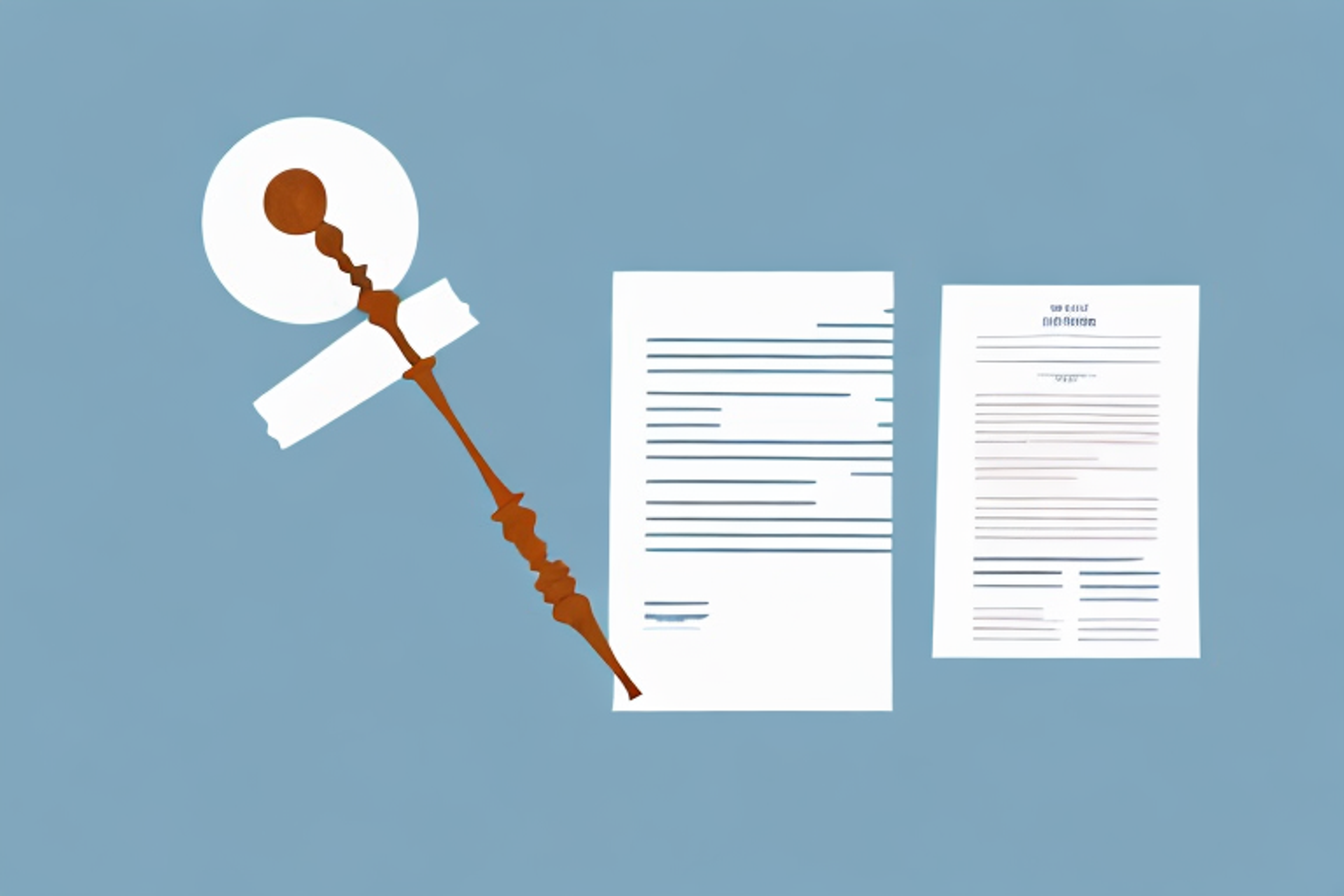Essential Soft Skills for a Successful Law Career
Discover the essential soft skills you need to excel in a law career.
Posted March 6, 2025

Table of Contents
As a lawyer, technical skills are crucial for success in the legal profession. However, there is one set of skills that is often overlooked but can be just as important – soft skills. Developed through experience and personal traits, soft skills can make or break a lawyer's career. In this article, we will explore the importance of soft skills in the legal profession, and detail ten essential soft skills that can help lawyers excel in their careers.
The Importance of Soft Skills in the Legal Profession
Soft skills, also known as people skills or interpersonal skills, are the non-technical skills that allow individuals to interact effectively with others. In the legal profession, soft skills are an essential part of a lawyer's job. Lawyers must interact with clients, colleagues, and judges on a regular basis, making strong communication and interpersonal skills a must-have.
Soft skills are also important for building and maintaining relationships with clients. Good communication skills can help lawyers explain complex legal issues in an understandable way, while conflict resolution skills can help them navigate disagreements with clients and opposing counsel.
Moreover, soft skills are crucial for effective teamwork in the legal profession. Lawyers often work in teams to handle complex cases, and the ability to collaborate and work well with others is essential. This includes skills such as active listening, empathy, and adaptability, which can help lawyers work together to achieve common goals and deliver the best possible outcomes for their clients.
Communication Skills: How to Effectively Communicate with Clients and Colleagues
Communication is an essential soft skill in the legal profession. Lawyers must be able to communicate in a clear and professional manner both verbally and in writing. When communicating with clients, lawyers should avoid legal jargon and explain complex legal issues in plain language. This helps ensure that clients understand their legal options and the potential outcomes of their case.
When communicating with colleagues, lawyers must also be able to convey complex information in a clear and concise manner. Collaboration is often required in the legal profession, so effective communication skills are essential for ensuring that everyone is on the same page and working towards the same goals.
In addition to clear and concise communication, lawyers must also be able to actively listen to their clients and colleagues. This means paying attention to what is being said, asking clarifying questions, and showing empathy and understanding. Active listening helps build trust and rapport, and can lead to more effective problem-solving and decision-making.
The Art of Active Listening: A Key Soft Skill for Lawyers
Active listening is another essential soft skill for lawyers. When dealing with clients, lawyers must be able to listen actively in order to understand their clients' needs and concerns. This helps build trust between lawyers and clients and can ultimately lead to better outcomes for clients.
When listening to colleagues or opposing counsel, lawyers must also be able to listen actively in order to better understand their position and arguments. This can help lawyers prepare stronger legal arguments and find common ground in negotiations.
Moreover, active listening can also help lawyers identify potential issues or concerns that their clients may not have initially mentioned. By actively listening and asking follow-up questions, lawyers can ensure that they have a complete understanding of their clients' situation and can provide more comprehensive legal advice.
Time Management: Balancing Multiple Cases and Priorities
Lawyers often have to balance multiple cases and priorities at the same time. Effective time management skills are therefore essential for success in the legal profession. Lawyers should prioritize tasks based on their importance and deadlines, and be able to manage their time efficiently in order to meet those deadlines.
Effective time management skills can also help lawyers alleviate the stress that comes with a heavy workload. By managing their time effectively, lawyers can avoid burnout and maintain a healthy work-life balance.
In addition to prioritizing tasks, lawyers can also benefit from using time management tools and techniques. These can include creating to-do lists, using calendars and scheduling software, and breaking down larger tasks into smaller, more manageable ones. By utilizing these tools, lawyers can better organize their workload and ensure that they are making progress on all of their cases and priorities.
Another important aspect of time management for lawyers is the ability to delegate tasks to others when appropriate. This can include assigning tasks to paralegals or other support staff, or collaborating with other lawyers on cases. By delegating tasks, lawyers can free up their own time to focus on more complex or high-priority tasks, while still ensuring that all necessary work is being completed in a timely manner.
Conflict Resolution: Navigating Disagreements with Clients and Opposing Counsel
Conflict resolution is an important soft skill for lawyers as disagreements and conflicts are bound to arise in the legal profession. Lawyers must be able to navigate these disagreements effectively, whether they are with clients, opposing counsel, or colleagues.
When dealing with conflicts, lawyers should remain calm and professional, and work towards finding a solution that is in the best interests of all parties involved. This requires strong communication and negotiation skills, as well as the ability to manage emotions and stay objective.
One effective strategy for conflict resolution is to actively listen to the other party's perspective and concerns. This can help to build trust and understanding, and may lead to a mutually beneficial solution. Additionally, lawyers should be willing to compromise and find creative solutions that meet the needs of all parties involved.
It is also important for lawyers to be aware of their own biases and assumptions, and to approach conflicts with an open mind. By acknowledging and addressing these biases, lawyers can avoid making hasty decisions or taking actions that may exacerbate the conflict.
Emotional Intelligence: Understanding and Managing Emotions in the Legal Workplace
Emotional intelligence is the ability to understand and manage your own emotions as well as the emotions of others. This is an essential soft skill for lawyers to have as emotions can often run high in the legal profession.
Lawyers must be able to manage their own emotions in order to remain professional and objective in their work. They must also be able to read and understand the emotions of others in order to build strong relationships with clients and colleagues.
Furthermore, emotional intelligence can also help lawyers to effectively negotiate and resolve conflicts. By understanding the emotions and perspectives of all parties involved, lawyers can find common ground and reach mutually beneficial solutions.
Additionally, emotional intelligence can contribute to a positive work environment. Lawyers who are able to manage their own emotions and understand the emotions of others can create a supportive and collaborative workplace culture, which can lead to increased job satisfaction and productivity.
Leadership Skills: How Being a Leader Can Benefit Your Legal Career
Leadership skills are important for lawyers who wish to take on leadership roles within their firms or in the legal profession. Effective leaders are able to inspire and motivate their colleagues, leading to increased productivity and better outcomes for clients.
Effective leaders also possess strong communication and conflict resolution skills, as well as emotional intelligence. By developing these soft skills, lawyers can become effective leaders and advance their careers in the legal profession.
Furthermore, being a leader in the legal profession can also provide opportunities for networking and building relationships with other professionals in the industry. This can lead to new business opportunities and referrals, as well as a stronger reputation within the legal community.
Additionally, taking on leadership roles can also provide lawyers with valuable experience in managing teams and projects, which can be transferable to other industries or positions outside of the legal profession.
Collaboration and Teamwork: Working Effectively with Paralegals, Associates, and Other Lawyers
Collaboration and teamwork are essential for success in the legal profession. Lawyers must be able to work effectively with paralegals, associates, and other lawyers in order to achieve the best possible outcomes for clients.
Effective collaboration and teamwork require strong communication skills, active listening skills, and the ability to manage conflicts. It also requires lawyers to be open-minded and willing to consider the input of others.
One important aspect of collaboration and teamwork in the legal profession is the ability to delegate tasks effectively. Lawyers must be able to identify the strengths and weaknesses of their team members and assign tasks accordingly. This not only ensures that tasks are completed efficiently, but also helps to develop the skills of team members.
Another important factor in successful collaboration and teamwork is the ability to provide constructive feedback. Lawyers must be able to give and receive feedback in a respectful and professional manner in order to improve the quality of work and maintain positive working relationships.
Flexibility and Adaptability: Being Prepared for Unexpected Changes in the Legal Landscape
The legal landscape is constantly changing, and lawyers must be able to adapt to unexpected changes in order to succeed. This requires strong flexibility and adaptability skills, as well as the ability to think creatively and outside the box.
Lawyers must be able to pivot quickly when necessary, whether it's changing their legal strategy mid-case or adapting to new technologies and methods of legal practice. By developing these soft skills, lawyers can prepare themselves for unexpected changes and remain successful in their careers.
One way that lawyers can develop their flexibility and adaptability skills is by seeking out diverse experiences and perspectives. This can include working with clients from different backgrounds, practicing in different areas of law, or even taking on non-legal roles within their organizations. By exposing themselves to new challenges and perspectives, lawyers can become more versatile and better equipped to handle unexpected changes.
Another important aspect of flexibility and adaptability is the ability to learn and grow from mistakes. Lawyers must be willing to acknowledge when they've made a misstep and be open to feedback and constructive criticism. By embracing a growth mindset and continuously learning from their experiences, lawyers can become more resilient and better prepared for whatever the legal landscape throws their way.
Building Relationships: Developing Strong Connections with Clients and Peers
Finally, building strong relationships with clients and peers is an essential soft skill for lawyers. This requires lawyers to be empathetic, responsive, and trustworthy, and to communicate effectively with others.
Building strong relationships with clients can lead to repeat business and positive word-of-mouth referrals. Building strong relationships with peers can lead to opportunities for collaboration and mentorship, as well as a supportive network of colleagues in the legal profession.
Soft skills are an essential part of a lawyer's career, and can make a significant difference in their success. By developing and honing these essential soft skills, lawyers can excel in their careers and build successful and fulfilling legal practices.











